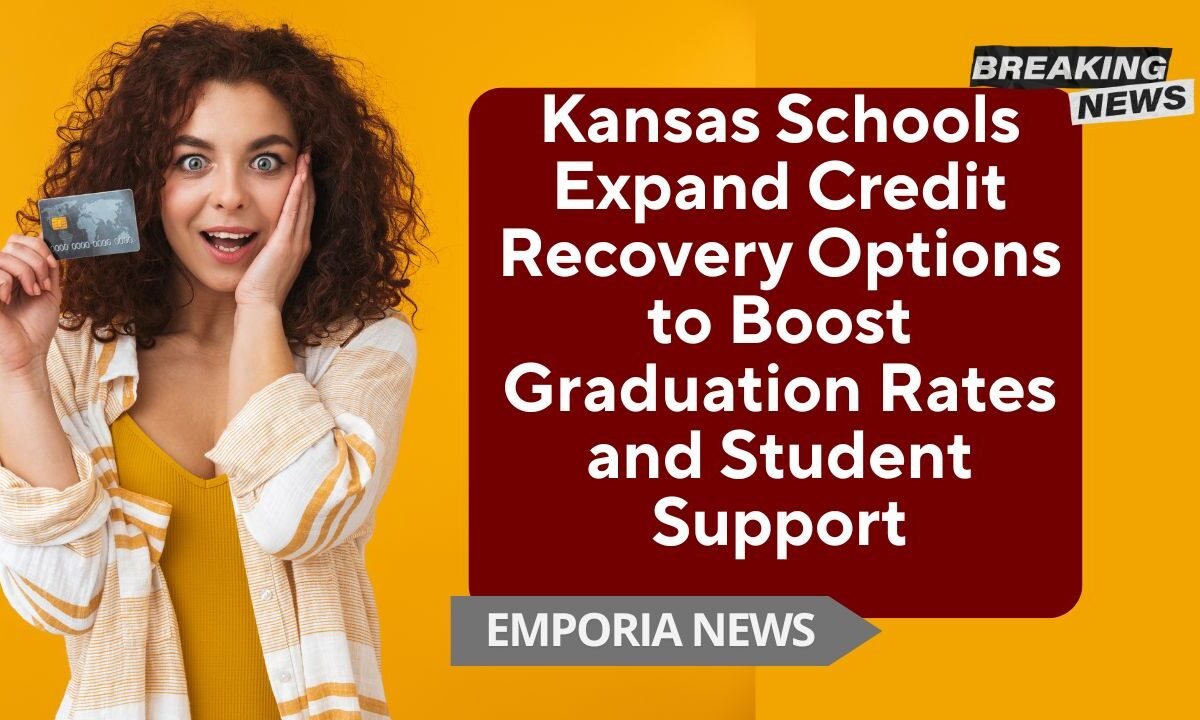High schools across Kansas are expanding their credit recovery programs to help more students stay on track for graduation, offering flexible paths for those who fall behind.
While these efforts are increasing graduation rates, they’re also sparking discussions about academic rigor and long-term student success.
More Flexible Paths to Graduation
School districts throughout Kansas are adopting alternative credit recovery models that allow students to regain lost credits without repeating an entire semester or school year. In Wichita, options include:
- Night classes
- Learning centers staffed by certified teachers in each high school
- The Simon Youth Academy located at Towne East Square Mall
Other districts offer online or hybrid formats for students to complete assignments and retake failed courses at their own pace.
“Life happens for our students,” said Wichita Superintendent Kelly Bielefeld. “Whether it’s family issues, jobs, or other personal challenges, we give them a second chance to earn credits and move forward.”
Personal Stories Highlight the Impact
Students like Gabriel Kasabdaje and Jessica Ross have firsthand experience with the importance of credit recovery. Kasabdaje worked while attending school after his father left the country and graduated this June by completing summer school credits.
Ross, who lacked several core credits in English, math, and science at the end of her senior year, completed recovery work and graduated on time.
“There were days I wanted to give up,” Ross shared. “But I kept going. I wanted to make my mom proud.”
Concerns About Academic Standards
While the growing availability of credit recovery is celebrated for keeping students enrolled, some educators and community leaders worry about its effectiveness.
Michelle Vann, a former teacher and member of the Wichita NAACP, questioned how students can quickly earn credits that normally require months of instruction.
“I’ve seen kids not passing and then suddenly completing packets to earn credit in a few days,” said Vann. She and others raised concerns to district leadership last fall, pointing out that while graduation rates rise, standardized test scores remain low.
District Response and New Initiatives
Wichita officials maintain that rigor still exists in credit recovery. Programs often use platforms like Edgenuity for self-paced learning, with content aligned to academic standards. This fall, Wichita is launching two new programs to expand in-person credit recovery:
- South High Alternative Academy will support sophomores who finished ninth grade with minimal or no credits. Students will receive targeted mentoring while recovering freshman credits and earning sophomore-level coursework.
- Wichita West High School will introduce an after-school recovery program for seniors, aiming to help them complete final credits and graduate on time.
“These programs aim to intervene early and offer intense support,” said South High Principal Travis Rogers. “We want to catch students before they fall too far behind.”
Ongoing Debate on Mastery and Subjectivity
Lauren Hatfield, Wichita’s assistant superintendent of secondary schools, told the school board that students must demonstrate subject mastery to earn credit, regardless of whether they’re in standard or recovery courses.
However, board member Melody McCray-Miller expressed concerns about subjectivity:
“When you say ‘master,’ what does that mean?”
Hatfield acknowledged that teachers evaluate proficiency individually: “Grading will always have some subjectivity.”
Defending the Program’s Purpose
Board member Stan Reeser stood firmly in support of credit recovery, calling it vital for student success.
“I’ve seen these programs. They are rigorous and give students a second chance. We have to go the extra mile to get these kids across the finish line.”
As credit recovery programs expand in Kansas schools, they continue to offer lifelines for students facing academic or personal challenges.
While questions about consistency and rigor persist, many educators see them as essential tools for keeping students engaged and helping them earn their high school diplomas.
Wichita’s new initiatives reflect a commitment to ensuring every student has a pathway to graduation, regardless of past setbacks.




